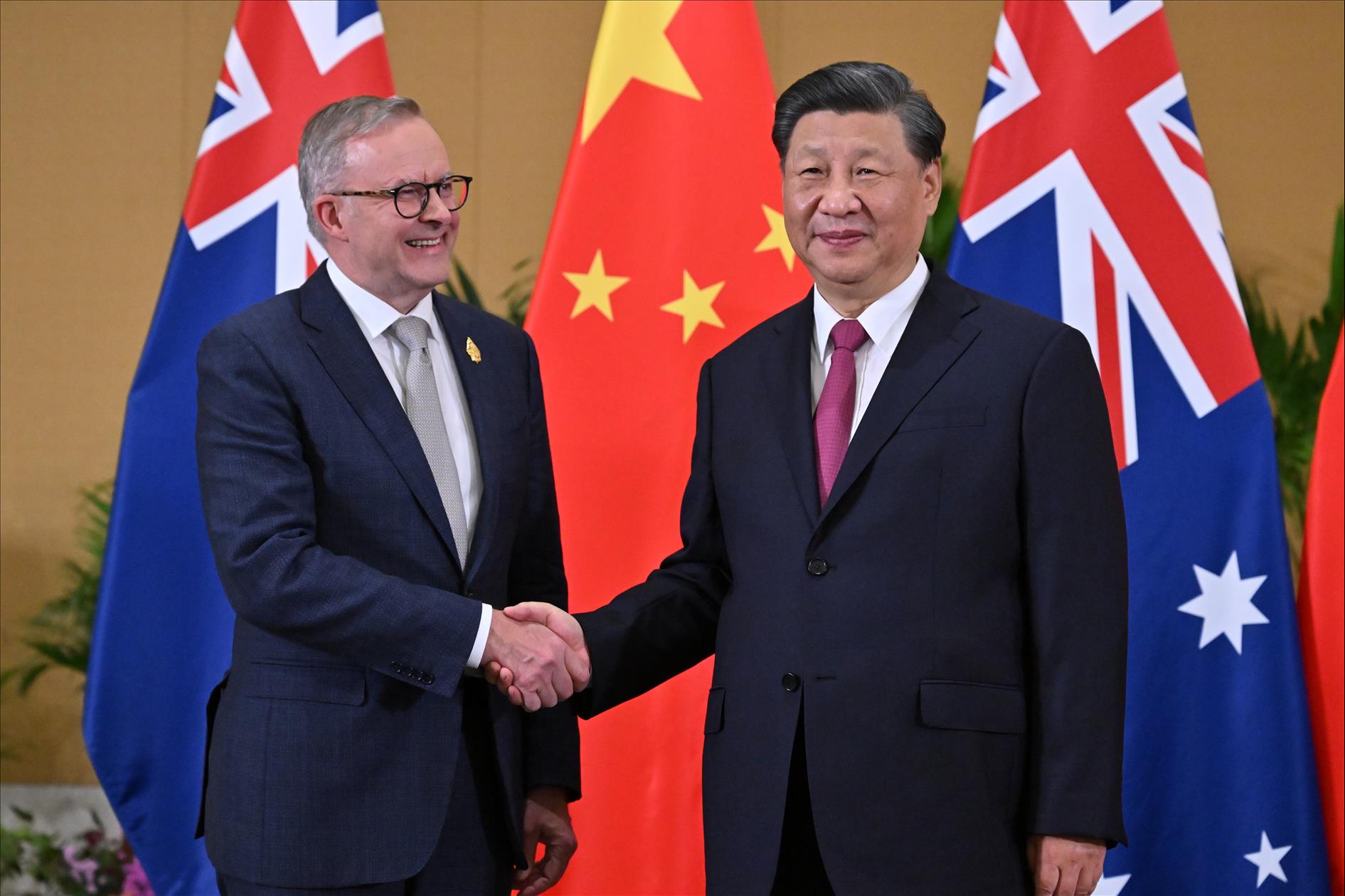(MENAFN- The Conversation) There were smiles all round as the Australian and Chinese leaders met formally for the first time in more than six years.
The meeting was brief, just 32 minutes, but Prime Minister Anthony Albanese led afterwards with the message that it“was a positive and constructive discussion”.
President Xi Jinping said in his opening remarks that the difficulties in the bilateral relationship were not what the Chinese side wanted to see.
Yet beyond conciliatory words and photo opportunities, the Australian public is being hit with contrasting takes on what the meeting means for relations with our most important trading partner and the“big guy” in the regional room.
On one hand, it's been described as a“landmark” and“historic” event – a“huge reset” of Australia-China ties.
What's conjured up is images of wine and rock lobster flowing freely through Chinese customs once again, and the detained Australians Yang Hengjun and Cheng Lei stepping off the prime ministerial jet alongside Albanese when it lands in Sydney later this week.
Others, however, are keen to moderate expectations. Treasurer Jim Chalmers warned earlier this week that
A diplomatic off-ramp
The reality is that Canberra and Beijing's assessments of their respective interests remain far from aligned.
For starters, let's be clear on what led to a meeting even taking place. Two factors combined, with neither being sufficient alone.
First, by the end of 2021, Beijing had ample evidence the hardline approach it was taking to shifting Canberra's positions wasn't working.
The trade sanctions deployed in 2020 were having no discernible impact on the Australian economy at large. They were, however, generating plenty of negative headlines for China internationally.
Meanwhile, Australian public opinion towards China collapsed. By early 2022, polling revealed that far from backing down, 58% of Australians supported the adoption of a“harder Australian government line on China”, compared with just 17% who disagreed.
This meant Beijing was alive to face-saving off-ramps.
Second, by restoring diplomacy to centre stage in managing China relations, the new Australian government delivered such an off-ramp. Australian political leaders were now once again referring to China as a“comprehensive strategic partner”, while emphasising that“both sides”, not just China, would need to reflect on their handling of differences. Challenges posed by China's behaviour are acknowledged by the current government but not talked up for domestic political gain.
It's no coincidence that needlessly provocative rhetoric provided the trigger for Beijing cutting off senior-level political dialogue in early 2020. A tighter diplomatic ship overseen by Foreign Minister Penny Wong has now permitted its restoration.
Read more: with a new australian government and foreign minister comes fresh hope for australia-china relations
A step forward
The next question is, will the meeting make a practical difference?
Albanese himself said that simply“having the meeting is a successful outcome”.
That's not as trite as it might sound.
A meeting does not guarantee the Australian grievances will be addressed. But there's no doubting that in China in 2022, the person these grievances need to be put to, and who has the authority to address them, is the Chinese president.
Even superpowers understand this. In the lead-up to a meeting between US and Chinese leaders on Monday, President Joe Biden's national security advisor Jake Sullivan emphasised that
We can also be confident that a decisive signal has now been sent throughout the Chinese bureaucracy that there's official blessing to engage with Australia again.
A meeting of trade ministers to dig into ongoing disputes would naturally follow.
Australia's ambassador in Beijing, Graham Fletcher, can expect to see his access improved.
Even Chinese companies considering investing in Australia, and parents weighing up whether to send their children to study here, will now be revising their assessments of risk downwards, the opposite of the trend in recent years.
Another factor giving cause for optimism is that while the Australian government hasn't offered up compromises to get trade sanctions removed or detainees released, Albanese will have been able to credibly deliver messages directly to Xi that assuage core Chinese sensitivities.
Behind closed doors, he would have been able to say that Australia's position on Taiwan and our“One China” policy has not changed since diplomatic relations were struck 50 years ago. The Australian government unequivocally does not support Taiwanese independence.
And in contrast to the US, nor do we support the economic containment of China. On Monday, Trade Minister Don Farrell went as far as describing recent trade sanctions on China imposed by the Biden administration as“draconian”.
The meeting isn't a“reset” back to the sunny days of 2015. But it is on the dysfunction since 2020. Australia is a step closer to having a relationship with China on par with what other US allies and partners in the region have been able to maintain all along. And that's unambiguously a positive step forward.



















Comments
No comment